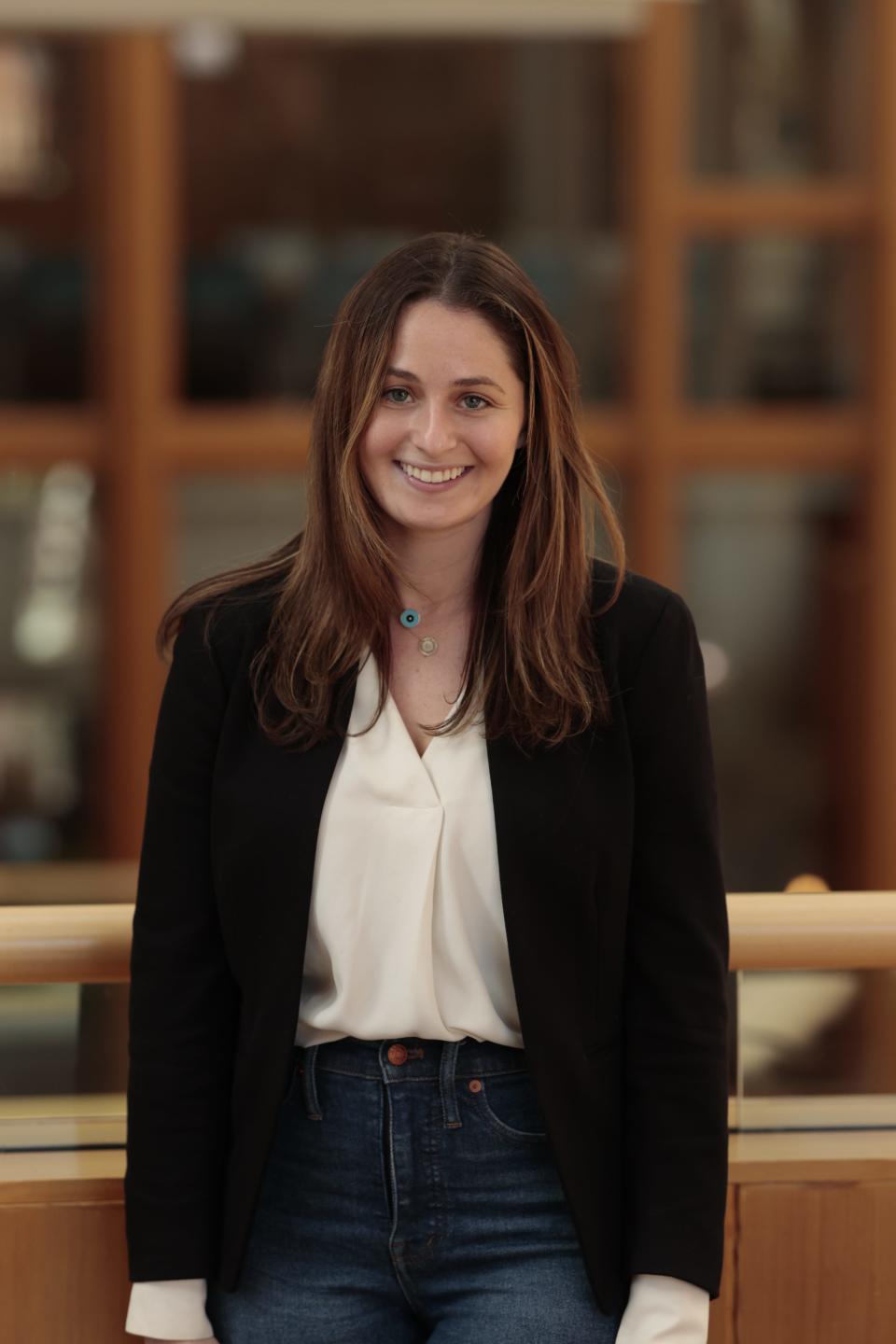Opinion: I was raped by a man I met on a dating app. Companies must do more for users
Lily Goldberg is a Columbus native and an Ohio State University graduate. She is currently pursuing her master's degree in public health at the University of North Carolina at Chapel Hill with a focus in health behavior.
If you’ve ever used dating apps, you know that swiping almost feels like a game.
It’s fun to see who you match with and where those matches can lead you. But that’s the problem with dating apps.
We treat them as a game, and with games there are no serious implications involved. However, this assumption is false.
I experienced alarming consequences from using dating apps on Independence Day 2020 when I was raped by a man I met on a dating app.
More:What to do if you experience harassment on dating apps
I began showing signs of post-traumatic stress disorder after the assault, my depression worsened, and my anxiety heightened.
Unfortunately, I am not alone in my experiences.
This guest column is available free:Support the exchange of local and state ideas by subscribing to the Columbus Dispatch. Special Subscription Offers
Sexual violence, an umbrella term for assault, abuse, harassment, rape, stalking, and other abuse is disgustingly common on dating apps, with women and the LGBTQ+ community members being disproportionately affected.

In a recent study from The Journal of Sex Research, 88.4% of college student respondents had experienced at least one instance of sexual violence on a dating app. The Australian Institute of Criminology found similar results in their study, with three out of four respondents experiencing an instance of sexual violence on a dating app.
More:Child sexual assault and abuse: They're more common than Ohioans may think
These data are alarming.
Even with these startling statistics, there is only one well-known dating platform that has addressed the adverse effects of sexual violence on dating apps. Bumble has recently partnered with Bloom, an app that provides trauma-informed care to victims of sexual violence.
When a user experiences sexual violence on Bumble, they can contact the company and get a free access code to utilize Bloom’s resources to heal.
Those who receive the code can undergo three self-paced courses: “Healing from Sexual Trauma,” “Society, Patriarchy, and Sexual Trauma,” and “Dating, Boundaries, and Relationships.”
These courses allow for maximum flexibility, as they are self-paced, and address financial constraints, which can be a large barrier to receiving any type of mental health treatment.
Unlike Bumble, Match Group (parent company to Tinder, Hinge, Match.com, and others) offers no resources for survivors of sexual violence.
Match Group has resources on Tinder like a panic button that can be used if the user feels like they are not safe on a date. However, after an incident of sexual violence occurs, Match Group does not do anything for the survivor.
In fact, there have been testimonials of users who haven’t even heard back from Tinder after alerting them about a sexual assault.
More:Are you a Tinder or a Bumble type of person? The clichés of 'big dating'
The lack of response and failure to address the issue of sexual violence shows how little Match Group cares about their users’ safety.
This is not to say Bumble is addressing the issue perfectly.
In fact, I believe all dating apps need to further innovate their sexual violence prevention strategies, but at least Bumble is willing addressing the issue and aims to help heal survivors. Creating sexual violence prevention strategies will likely take some time, so until then, providing resources to survivors is a step in the right direction.

Match Group should partner with an organization like Bloom to make changes on their handling of sexual violence.
Addressing sexual violence within the app doesn’t just mean preventing it, but also confronting it when it happens. Without having the resources in place on the app to address what will inevitably occur when strangers meet strangers online is dangerous for all users.
Let’s stop ignoring the victims of sexual violence and start blaming the apps who do nothing to address the intensive issues survivors are facing.
Until Match Group adequately addresses sexual violence on their app, I urge you to use Bumble, an application that is innovative in providing resources to survivors.
Lily Goldberg is a Columbus native and an Ohio State University graduate. She is currently pursuing her master's degree in public health at the University of North Carolina at Chapel Hill with a focus in health behavior.
Editor's note: Goldberg did not report her assault.
This article originally appeared on The Columbus Dispatch: Lily Goldberg: What can dating apps do to protect users
